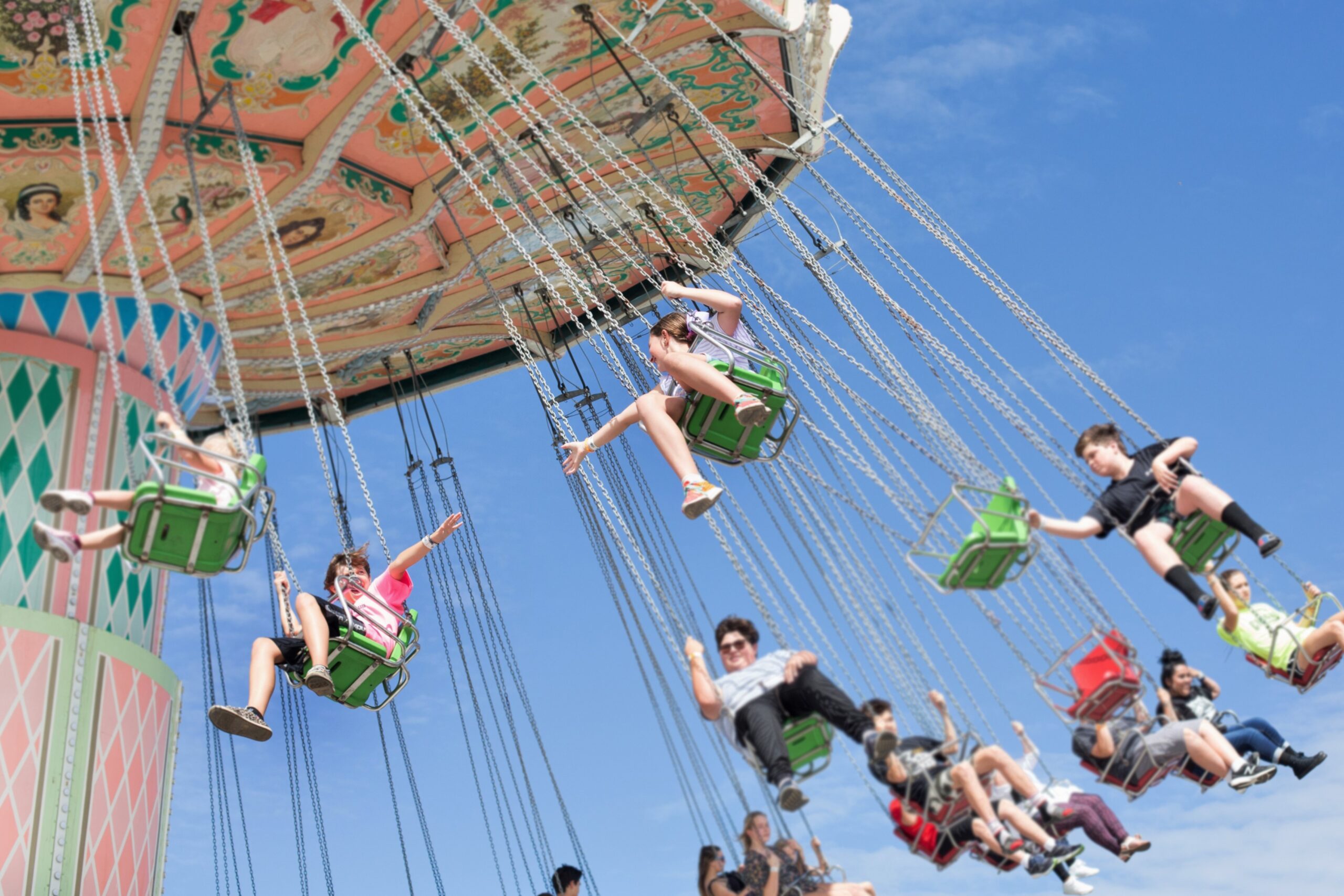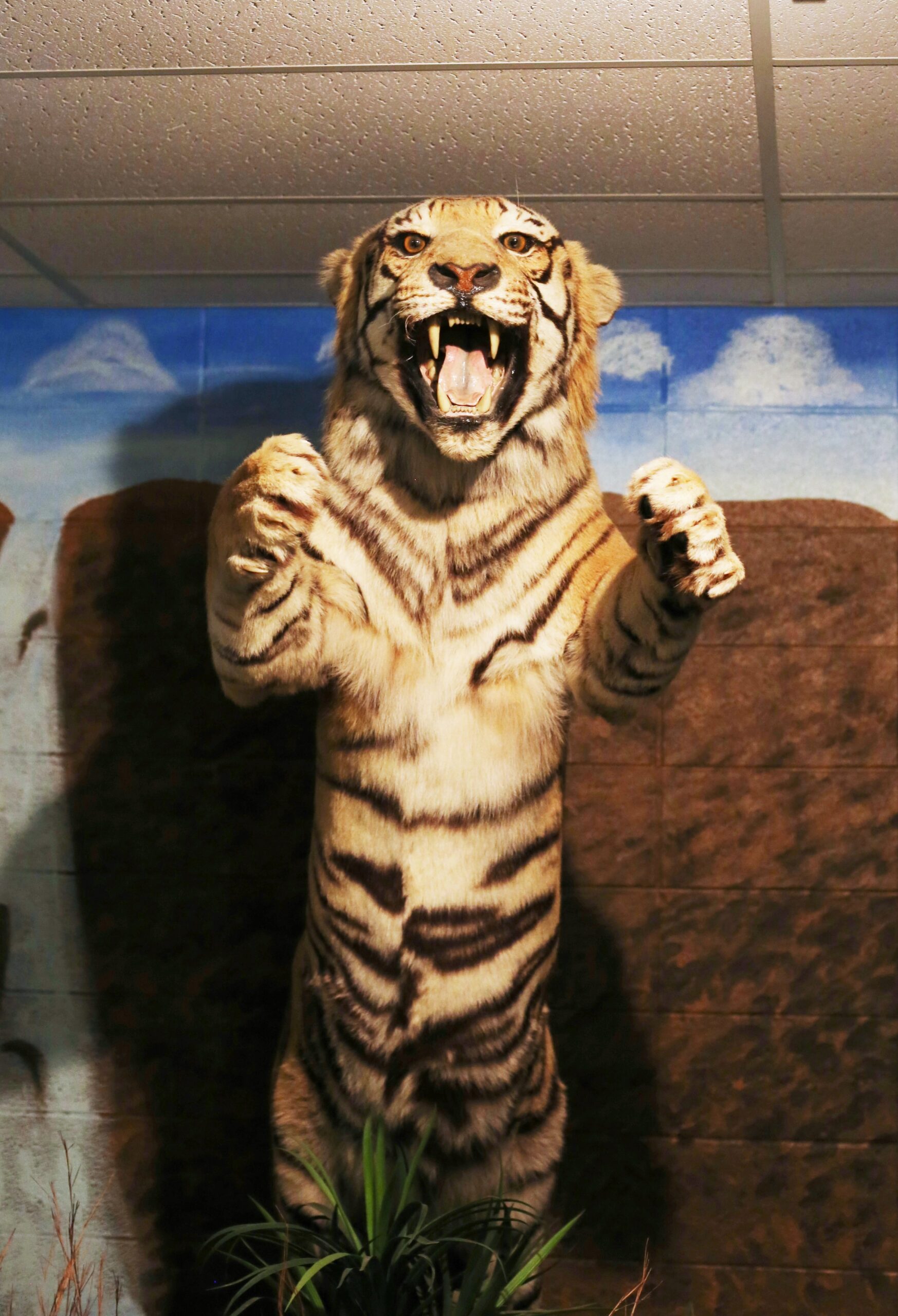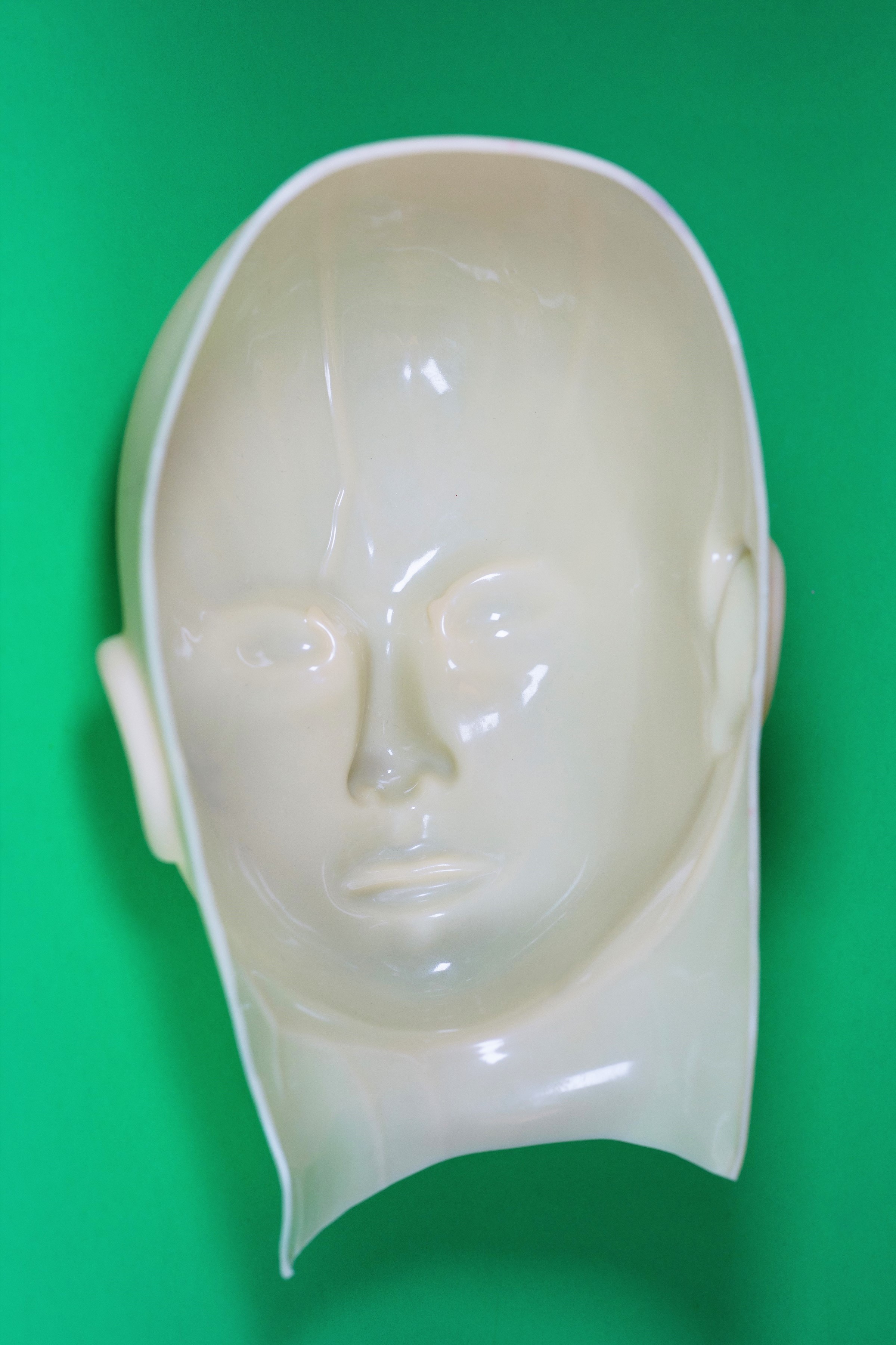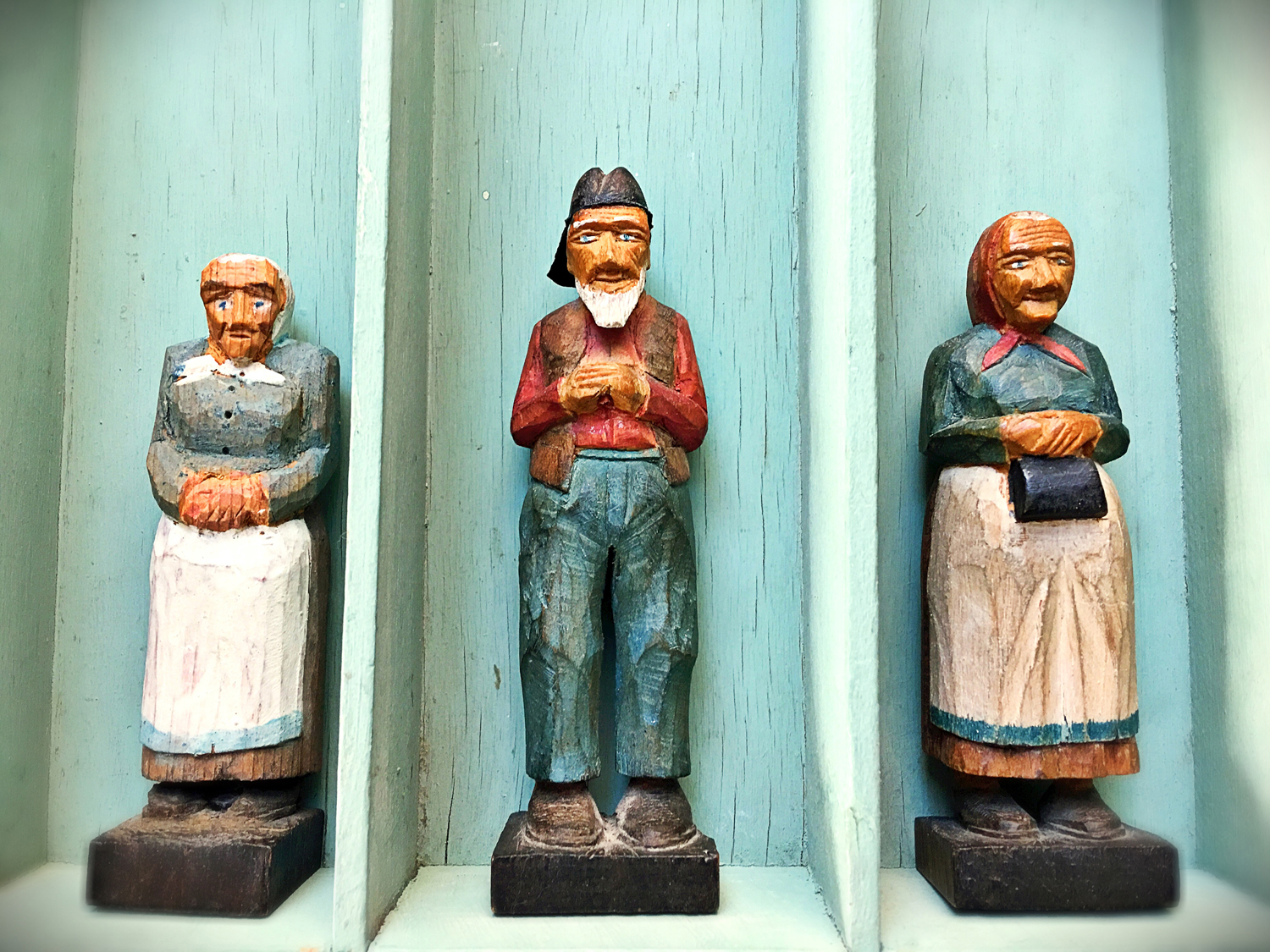
By Kate Sweeney
A couple of years ago, I was walking by myself through our neighborhood when I spied a couple—a young man and woman—with a little girl in a stroller, about the age of my own child.
“Oh! You have a kid?” I blurted out, following up quickly with what I hoped was a non-creepy-lady-accosting-a-couple-on-the-street smile. “How old is she?”
“She’s three,” said the woman and then quickly added, “but we’re about to move,” raising a hand as if to stop me right there. The gesture was not unlike that of a married person in a bar flashing her ring finger.
I wanted to ask her: How did she know I had a child? Had other people stopped them like this? Because her response felt rote, like she and her husband had spent their entire tenure in our neighborhood fending off would-be play-daters. And, more important to me: If this was the case, where were these other desperate neighborhood parents? Because I wanted to meet them.
This interaction seems innocuous enough: a mother looking for other families to hang with. A gesture that stems from a longing, as much for people as for place—a precise sort of Shangri-La that’s common enough in the American psyche—a neighborhood composed largely of kids and parents. In this place, people stroll up to one another’s porches to borrow a cup of flour, to lend a watchful eye and a playmate, or just to exchange a casual hello or a joke. The streets of this Eden are littered with bikes, scooters, and sidewalk chalk. Halloweens are epic. The version that I envisioned stopped short of manicured lawns and signs in kitchens reading, “Wine O’Clock.” We are urban liberals, after all—with aging hipsters’ razor-blade sense of what’s beyond the pale, cool-wise. But facts were facts: We lived in an intown neighborhood—a quiet place full of quiet streets and houses with closed doors behind which folks kept to themselves.
During my son’s prime toddler playdate years, I was never quite successful at finding that Shangi-La. And that fact held within it echoes of other times and places, a longing for home even as I was in it.
This isn’t a story about mere loneliness. It’s about place.
•••
A few years out of college, I was absorbed by the desire to live in a commune, or intentional community, or whatever you call it when neighbors are all cooking together in a big group kitchen but minus the bearded dude in orange robes who sleeps with all the women and the person in sunglasses standing off to the side holding a briefcase filled with everyone’s trust-fund money.
My imagination landed on a place called Zendik Farm in the mountains of North Carolina. This was the early 2000s, when the Zendik Farm people would still come into the Little Five Points neighborhood in Atlanta selling tee-shirts, pamphlets, and bumper stickers that read, in bold black sans-serif: “Stop bitching. Start a revolution.”
I did not know what this revolution was, but I imagined it had something to do with living off the land, with giving the finger to the establishment and learning to survive by your own wits along with a group of like-minded, can-do people.
One day someone left a Zendik Farm pamphlet in the coffeeshop where I worked. It was full of long, rambling sentences about the philosophy of their founder, a super-pure guy with a salt-and-pepper beard and long hair like ocean waves who had died just a couple of years earlier. Now, his surviving wife, of equally beatific calm and oceanic salt-and-pepper waves, had taken over, and all of this—the rambling philosophy, the worship of these old hippies—made it abundantly clear that I would never fit in there … but maybe, if I had to? I could try? I thought. Because geographically speaking, this was still the closest thing to Atlanta resembling my dream of getting the hell away and living life for real.
I was twenty-four, George W. Bush was president, and I was angry. I spent my days pedaling my bike between the coffeeshop where I worked and the cramped apartment I shared with my boyfriend, a fellow angry coffee-slinger. Our courtship had taken place fast, a romantic freefall in the midst of a string of bad roommates that had us moving in together almost immediately. That first year of our relationship is a red-eyed blur of free carbs and caffeine from work and talking together late into the night. I read his Punk Planet magazines and listened to his music, both of which electrified me. He was very much into a certain brand of moral purity: He taught me the term “DIY.” During this time, I read one of my boyfriend’s favorite novels, The Monkey Wrench Gang, and dreamed of joining its characters in chopping down billboards and performing other righteous acts of environmental vandalism. I did my best to ignore the fact that there was a lot of page space dedicated to the amazing tits and ass of the Gang’s righteous female environmental vandal. I also borrowed a book from a coworker about animal tracking, written by a white man who said he learned this skill from a Noble Native American. My boyfriend and I daydreamed about learning these skills so that we could survive when the shit went down, but I never finished the tracking book, and, to tell the truth, neither of us so much as gardened or camped. He didn’t know how to cook rice. I had trouble hammering a single nail.
•••
The other day in the car, I was listening to a young indie rock band I’d never heard before. The chorus they sang erupted in the words: “The world has left us behind/oh, the world has left us behind,” and before I knew I had any reaction at all, I found myself spitting bitterly at the speaker, “I have no ‘us,’ I have no ‘us!’”
In a flash, I understood the singers to be singing about themselves as the millennials or Gen Z’ers whose very future has been stomped out by forebearers who’d inflicted environmental and economic ruin on this world. Left behind. And believe me, I more-than-sympathize, but at that moment, something mean in me struck out, something jealous of the club membership insinuated by the song’s righteous, mournful pluck. Sure, they’d been left behind, but they’d been left behind together.
I was born in a generational split. I did not share in the seatbelt-less 1970s childhoods of my sisters, both far older than me, nor am I a member of the hyper-scrutinized generation that came after. Sitting, as I do, in a late ’70s gap year of comparatively few American births, no marketing strives exactly to target me. All my life, it seems, this has put me at a distance. A distance from my older sisters and their shared childhoods. A distance from other kids, who, it seemed, were all far older or far younger than me in the lonely suburban neighborhood where I grew up. And at a distance, today, from coworkers who are just five or six years younger, but with figures of speech and ways of being that often seem utterly foreign.
Much of the time, I like this distance. Distance—from any natural tribe or club or gang—is where I spent my entire childhood, and so it has come to mean comfort. I spent my childhood sitting under tables and around corners, forgotten, listening in and learning. I’m an observer, and much of the time, that feels like enough. But not always.
•••
In the coffeeshop, the staff was an us. The people we served, as we viewed them, were mostly white yuppies. My boyfriend didn’t like them, a dislike he shared with the rest of our close-knit gang of coworkers. They—we, I guess—were fiercely dedicated to one another: workers-of-the-world united by the reality that the American Dream was a bunch of bullshit and that to own a house or work something more than either a proletarian gig or a selfless nonprofit job helping our fellow man signaled corruption.
Something in me was suspect, though. I harbored dreams above and beyond that of our little food service community, and this made me a pet. “Here comes Katy, cub reporter!” a coworker would declare as I rushed in from the public radio station where I had scored something like a part-time unpaid internship. I flinched at this condescension; it made me try harder. My first tattoo was a traditional sailor’s-style number covering my entire chest, and my coworkers, standing around the chair where I lay prone in a velvet-curtained studio, cheered as one to see the needle first hit flesh.
•••
After three turbulent years, my boyfriend and I broke up. Among other things, my ambition had shown through. Careerist, he called me when I chose my reporting job over a move with him to the Midwest, to work at his brother’s fair-trade coffee business. We made several more attempts after then, including the last: a winter flight north to his attic apartment, whose kitchen lacked both butter and salt. The summer before, during the heady days just before the market crash, he had considered buying a house; he was still kind of broke but qualified for an amazing loan. Now, late at night, the snow falling on the thin roof of the saltless, butter-less garret, our last fight: He called me “a little gold-digger-y” for the way I’d salivated over the idea of being with a man who owned a house.
To be fair, I probably had.
By then, I was living with grad school roommates in a crumbling old manor house chopped into apartments. This was on the North Carolina coast. The house was a gorgeous, decaying thing: pocket doors with stained glass windows, sky-high ceilings, cockroaches, and walls with literal mouse holes, like in cartoons. Ours was the apartment famous for parties, and during one marked by an unusual level of debauchery—unsavory couplings on the kitchen floor and a mystery guest or two—my most precious cache of jewelry, including the mother-of-pearl earrings made from a grandfather’s cufflinks, disappeared from the hall closet where I’d stashed them in a fit of distrust, as the windows of my ground-floor bedroom didn’t quite close.
If grad school life in the crumbling manor house apartment did not provide security, it did provide a level of community that I haven’t been able to match since. My bedroom was the smallest of three. Located just off the kitchen, it had once been the maids’ quarters: it connected to a second, smaller, windowless room behind it. This was my inner sanctum where I spent mornings and evenings writing. These were hours of wonderful, dreaming solitude, the kind of solitude that is wonderful because it’s not mandatory: Out there down the long hallway, there was always a space for me on the living room sofa where my roommates were watching bad reality television. Friends would walk the winding route back to my door to insist that I join them out on the porch for some wine and a game of corn hole. We cooked big breakfasts, and dinner parties were frequent. Dance parties blew off the steam and drama of grad school life, and—well, I told you where those led. It occurs to me now that the true greatness in those years lay mostly in the fact of living within walking distance of friends.
•••
Last night, a frequent dream returned: I am back in college. Not grad school, but undergrad. Out of some nebulous obligation, I have left my home, spouse, and child to go live with a nineteen-year-old in a dorm. In this version, classes were set to start the very next day, but I had no place to sleep. I drifted past the small cement block rooms inhabited by happily bunked students in sweatpants eating popcorn and studying, and, in the dramatic way of dreams, I wept as I walked, my sense of dispossession complete. Awakening was the same as always: a blessed relief as the ordinary landmarks of home spring up, the insecurities of my peripatetic youth drifting back into the ether.
•••
My household today is compact, tidy, and small: two adults and one child inhabiting nine hundred square feet. The last year and change have found us more circumscribed than ever, sealed off from the world by necessity during a time of pandemic. The benign sorts of border-intrusion that signal community—dinner parties and indoor play-dates—were mostly off-limits to everyone, a fact which, during the first weeks, acted on me as strange sedative, quieting any fears of missing out I may have previously harbored.
It was in this calm that I recognized the commonalities of the kind of community that I crave: It is an introvert’s dream, a just-add water brand you don’t have to work at. Put one way: a favorite childhood memory is lying with my ear to the yellow shag carpet in the upstairs hallway, listening to the grown-up party downstairs. I would waltz down in my nightgown; guests would smile at me, parents would say good-night, and then I could disappear again. Put still another: a few years ago, some ten or twelve years after my own dreams of selling all my belongings and moving to an actual intentional community had faded, I began investigating the golden age of American utopias: Alcott’s Fruitlands, New Harmony, Oneida. In part, I was trying to understand my own dream of disappearing into to a prefabricated community.
I don’t want to be responsible for making community happen. But I do, fiercely and with great longing, want for it to be. And to be part of it. And so, it turns out that the dear ex, who, in that moment of anger, called me “a little gold-digger-y” was right: A gold-digger doesn’t want to make an effort. She wants no lonely apartment, but a move-in-ready home, with all the small physical and emotional niceties this term implies. I’m so sorry, babe.
In the early months of the pandemic, I developed a different kind of sympathy, this one for my neighbors, the extraverted ones. I felt myself blessed, blessed, a thousand times blessed for the job and the home I still had—but also for the strange way in which this time was working in my favor. In my basement office, sunlight and birdsong pour in through one tiny window, and I was free of the mandatory small talk and sense of exposure that typify a day of open-floorplan office work.
And when I had to stretch my legs, there were options.
It’s an understatement to say I was no longer alone on my walks. Instead, one unlikely road near my house became the distanced Barcelona Ramblas of East Atlanta, populated each spring evening by joggers, young couples by the dozen, roommates tossing Frisbees as they strolled, and entire families—everyone awkwardly jostling to space themselves apart along the wide street that’s usually home to cars flying too fast past our houses.
In those weeks, I met three different parents with kids my child’s age. I loved everything about the chats I had with these people—their mutual genuine warmth and brevity, and how they ended with a mutual promise of playdates “after all this is over.” Sure, I would say, and in the quiet knowledge of options sometime down the road and the parting of ways that would occur within thirty seconds, I found perfection. We were all lonely now, but I was markedly less lonely than before in this level playing field: this one damaged world was all any of us had, not one of us bound for some other Shangri-La beyond our ordinary street on a glorious spring evening.
•••
And then, things changed, because they always do. The vague promises my neighbors and I made of future fellowship during those early days of the pandemic didn’t threaten my introvert’s bubble, and it turned out they never would. Looking back now, I cannot remember the specifics of what we promised, nor a single name. As spring became summer, the number of people I passed in the streets dwindled. In the baking heat of the parking lot outside the grocery store—the only place I ever went—we sweated through our masks. Once inside, I found it hard even to make eye contact with anyone, so repulsed was I by these other bodies which quickly became a mass of blurred, contagious humanity in my peripheral vision. And still, I felt lonely. Lonely and ineffectual as I kept our kid apart from the world, clicking away at “Donate” buttons on my phone during that summer of protest, and during the dark winter that followed, walking our old dog down empty streets while listening to news podcasts that kept me an informed, terrified citizen.
I’m not saying there weren’t moments. There was at least one.
A candlelight vigil honoring Congressman John Lewis sparked joy so sharp it was hard to distinguish from anger. After his death, hundreds of us walked beneath a highway overpass that sliced a Black neighborhood in half, our words reverberating back to us in waves of call and response: Good trouble. Good trouble. Good trouble!
It was a sudden full-body thunderclap of spirit that had everything to do with people and place. This explosive no to the dominant narrative of exclusion offered a double jolt of communality. We were home, and we were home.
•••
When I was younger, I imagined community to be a thing one secured and checked off a list, like a haircut that agrees with one’s chin or a writing career. (Joke’s on you, Young Me.) You find it and, bam, there you are around the campfire; you’ve not been rejected. These are your people and there is nothing further to seek. The other night I found myself around a real campfire, leading a birthday toast for my sweetheart. The fire had been late getting going and we complained as we waited: It was too cold, too dark to just stand around like this, but now we huzzahed as one, the periphery lurking, a barren wilderness at our backs, our little group of six or eight inching a bit closer now despite the continued risk of pandemic contagion.
It was one of those moments of ultimacy. But it was just a moment. There have been other fires, other toasts my whole life through with stretches of cold between. It will all find its way to me again. This thought occurred to me as I looked at the faces of our friends, all of us imperfectly fitted to one another but clinging close on this chilly fall night. Laughing at a joke, I sat down. My camp chair was a little too close to the flames and I knew that the next morning, I’d be dehydrated with itchy legs. For the moment, I bathed in the warmth anyway.
•••
KATE SWEENEY is a writer, podcast host and producer, and former public radio journalist living in Atlanta, Georgia. Her book American Afterlife, (UGA Press, 2014), earned a Georgia Author of the Year Award. Thomas Lynch called the book “a reliable witness and well-wrought litany to last things and final details.” Readers mostly tell her they were surprised it wasn’t a total bummer. Among other places, her writing has appeared in Oxford American, Utne Reader Online, Atlanta Magazine, New South, and Creative Loafing. More here: katesweeney.net

 Follow
Follow


